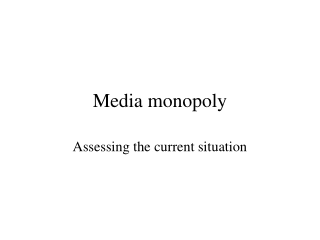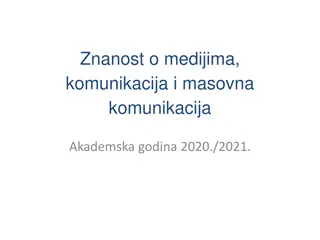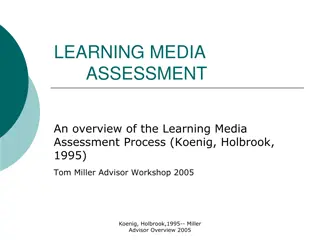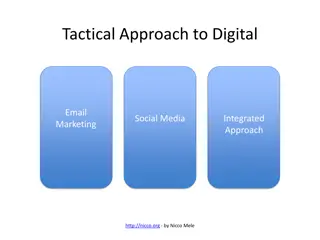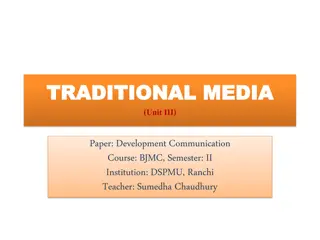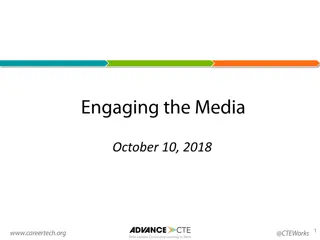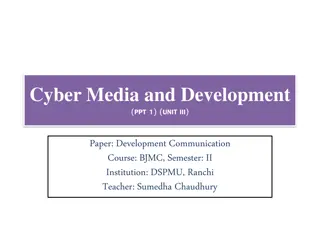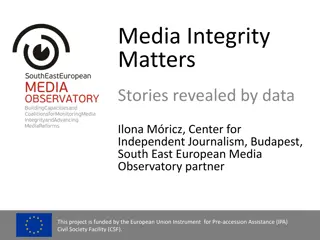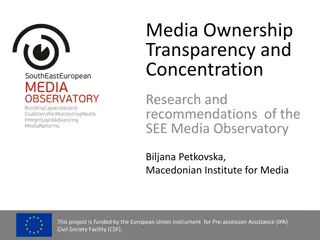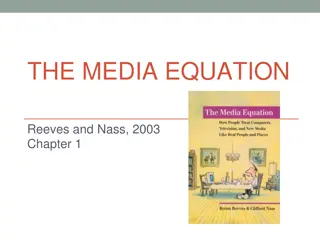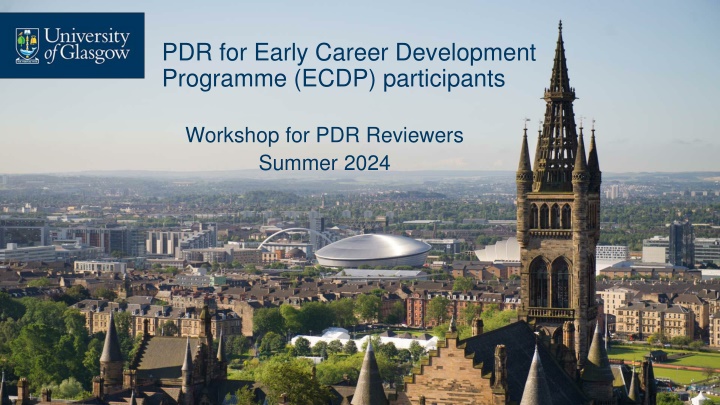
Early Career Development Programme (ECDP) and Academic Promotion
Explore the objectives and ambitions of the Early Career Development Programme (ECDP) in academia, emphasizing the connection between ECDP, Academic Promotion, and Professional Development Review (PDR). Discover the essential elements, structure, and aims of ECDP, as well as the importance of effective PDR practices and objective setting for career progression. Gain insights into how the ECDP supports newly appointed academics to reach Grade 9 within specified timescales through rigorous objective setting and developmental opportunities.
Download Presentation

Please find below an Image/Link to download the presentation.
The content on the website is provided AS IS for your information and personal use only. It may not be sold, licensed, or shared on other websites without obtaining consent from the author. If you encounter any issues during the download, it is possible that the publisher has removed the file from their server.
You are allowed to download the files provided on this website for personal or commercial use, subject to the condition that they are used lawfully. All files are the property of their respective owners.
The content on the website is provided AS IS for your information and personal use only. It may not be sold, licensed, or shared on other websites without obtaining consent from the author.
E N D
Presentation Transcript
PDR for Early Career Development Programme (ECDP) participants Workshop for PDR Reviewers Summer 2024
Objectives To deepen our understanding of the connection and interdependence between ECDP, Academic Promotion and PDR To discuss some aspects of effective PDR practice, with particular focus on objective setting Develop understanding of ECDP (structure, elements and overall aims) To increase awareness of PDR purpose and process and how this contributes to ECDP success
ECDP the ambitions To develop high achieving, high performing academics in line with World Changers Together strategy A vehicle to support newly appointed academics to develop their academic skills and progress their careers Aims to recognise those ambitions by supporting staff to reach Grade 9 within 5-8 years Annual objective setting along with substantial developmental opportunities provide the back- bone to the programme ECDP objectives match on to diverse promotion criteria, regarded as exemplary in the sector Current mandatory elements: PgCAP, Research Integrity, PGR supervisory training Mentors appointed to provide support and advice to participants throughout the duration of the programme
Timescales 8 years Grade 9 5 years Grade 8 3 years Grade 7 Objective setting and substantial development opportunities UofG Academic Appointment & Promotional Policy N.B the clock does not re-set if promotion to G8 is 'late' Absences/Extensions/Covid 5
Learning, Teaching & Scholarship Research & Teaching Research only
The Criteria R&T / RO LTS Outputs Learning & Teaching Practice Award generation Scholarship, Knowledge Exchange & Impact Scholarly Outputs Research Income Supervision Supervision Impact Learning & Teaching Practice Leadership, Management & Engagement Leadership, Management & Engagement Esteem Esteem
The Development Programme Mandatory Development PgCAP Research Integrity PGR Supervision Mentoring Management Objective setting & PDR Personal Development Plan Networking Communities of Practice Support Mechanisms Recommended Development Management Skills Development Grant writing Public Engagement (a range of other development offerings)
Discuss at tables: Would you approach a PDR for an ECDP participant any differently to that of a non- ECDP colleague? If so, what might some of the differences be?
Alignment of UofG Processes Review progress, performance and set objectives (all aligned with University wide and local strategic priorities as well as the individual s developmental and career aspirations) PDR Progress to Grade 8 and Grade 9 will entail submission to the academic promotions rounds. Academic promotion criteria set the benchmarks for performance at each grade/track and are aligned with University strategy. Academic Promotion The developmental vehicle that supports early career colleagues to progress to Grade 9 within a set timescale. ECDP
Identifying if a reviewee is enrolled on ECDP The ECDP tab will detail the following information, bespoke to the individual. ECDP joining date Year of ECDP Promotion application to G8 due at or before (YEAR) if applicable Promotion application to G9 due at or before (YEAR) It will also contain links to the ECDP webpages and mandatory elements of the programme
PDR - points to note when reviewing an ECDP participant When reviewing performance and progress, the reviewer needs to be aware of where the reviewee is within the ECDP timeline. If close to promotion application being due, how does their evidence fit with the criteria for the next grade. If not close to promotion, is the trajectory on track? Are they on track with the mandatory elements? PgCAP/RET - need to have completed for promotion to G9 if on ECDP. Ideally apply no later than 3 years before being due to apply for promotion to G9, as spaces on the course are limited. Teaching Reduction for PgCAP - 50% Yr1, 25% Yr2
Quality Assurance Process The VP/HoC (or nominee) with oversight from the ECDP Programme Director, will review a sample of the PDR forms and may communicate feedback and/or require amendments to objectives before endorsing and ratifying progress to the next stage of the programme. Primary aim is to ensure the required performance standards are understood and support the ECDP participant to achieve them. Feedback is provided to colleagues and reviewers as appropriate. If there is insufficient progress towards completion of the programme, there will be dialogue between the VP/HoC (or nominee), the relevant HoS, College HoPOD and the ECDP Programme Director (or nominee), to ensure appropriate support is put in place.
Ratings for ECDP participants A rating is mandatory for ECDP participants. Honest, fair, justified, explained and transparent (preparation is key) Options are: Exceptional Performance Strong Performance Inconsistent Performance Improved Performance Required *Descriptors for each can be found in the PDR Policy
Setting objectives Specific Relevant Timed Measurable Achievable
Setting objectives Specific Relevant Timed Measurable Achievable What needs to be achieved? Have you provided enough detail to ensure clarity? What is the expected result?
Setting objectives Specific Relevant Timed Measurable Achievable Could this be measured? How will you know when it s been achieved? What data is available? What indicators will you look for?
Setting objectives Specific Relevant Timed Measurable Achievable Fit with the local strategic priorities in the context of the role and grade? Do they need resources? Advise on how to access them if required. What support is available (who, what, where?)
Setting objectives Specific Relevant Timed Measurable Achievable Link with strategy? Appropriate for role and grade? Is it stretching (not business as usual)? Academically ambitious?
Setting objectives Specific Relevant Timed Measurable Achievable Clear & realistic time frames? If spanning more than 1 review period have milestones been set?
PDR Good Practice Put adequate time aside (for preparation and the meeting) Give reviewee plenty of notice Always ensure the meeting is face to face (online if required) Contact reviewee beforehand to discuss any areas of focus/enquiry or if a pre-meeting is required Take time to read form and prepare feedback If you want support on how to deliver feedback seek advice from local P&OD teams Give review a deadline for validation of form (1 week before meeting)
and finally As reviewers you play a critical role in ensuring that our early career colleagues are given the best chance of achieving success and that the university benefits from having world leading talent!

